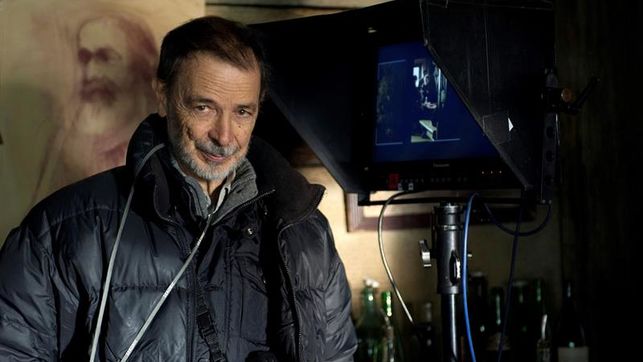WAGNER MOURA'S DIRECTORIAL DEBUT 'MARIGHELLA'
WHICH IMPRESSED BRIAN DE PALMA
Premiering at the Berlin Film Festival two years ago,
Marighella is
Wagner Moura's debut feature as director. The film was released in the U.S. earlier this year, and as it is released this past week in Brazil, Moura talks about it with
AdoroCinema's Aline Pereira:
Who was Marighella? Artist, politician and guerrilla, Carlos Marighella was one of the main figures in the fight against the repression of the dictatorship in Brazil until his death in 1969, when he was assassinated by government agents in an ambush. Considered the “No. 1 enemy of Brazil”, the guerrilla was arrested for subversion for the first time in 1932, when he published a poem criticizing government leaders. Later, he was tortured during the Vargas era, until he was elected Federal Deputy in 1946. In the year of the military coup, 1964, he was shot inside a movie theater - a scene in the film - and went into armed revolt, a decision that became a controversial figure within the libertarian movement - an issue that is also illustrated in Wagner Moura's film:
"This important character in the history of Brazil had his trajectory erased by the official narrative and the film we made returns to the popular imagination the figure of an important man. You can like him or not"
In the film, the protagonist is played by Seu Jorge, but the role, at first, would be Mano Brown, who could not participate due to availability conflicts. “My first choice was Mano Brown because, symbolically, for me it represents a lot of what Marighella was. A poet, a man who made no concessions,” analyzes the actor from Tropa de Elite.
Wagner Moura's directorial debut
In addition to being a milestone for national cinema, Marighella also marks the debut of Wagner Moura as a director, a work that combines his experience as an actor in major international productions, such as Narcos and Sergio, available in the Netflix catalogue, and references from directors he has worked with. “José Padilha [director of Tropa de Elite] himself is a reference for me and taught me that political cinema can be popular. This is an actor-directed film, it has my acting energy. The camera is me wanting to understand who those people are, those characters,” he explained.
Applauded at the Berlin Film Festival and praised by the New York Times, the film was also very well regarded by famous Wagner Moura “colleagues,” such as Brian De Palma, director of Scarface and Mission: Impossible, among others. “I showed the film to some people and a lot of the comments come from the way we filmed, the actors' work. Brian De Palma was very impressed with the long take from the start,” he said.
Here's
Devika Girish's brief
New York Times "Critic's Pick" review of
Marighella from this past April:
In 2018, the Brazilian president Jair Bolsonaro declared that he wanted “a Brazil similar to the one we had 40, 50 years ago”— referring to the era of the country’s military dictatorship, which saw violent censorship and the torture of dissidents. This contemporary context underlines the barreling urgency of “Marighella.” Directed by Wagner Moura (the star of Netflix’s “Narcos”), the film chronicles the final years of Carlos Marighella, a Marxist revolutionary who led an armed struggle against the dictatorship in the 1960s. With a rousing, kinetic style reminiscent of “The Battle of Algiers,” and confrontational close-ups of fiery eyes and faces, the film is not merely a historical biopic — it’s a provocation.
And a riveting one, too. Seu Jorge plays the charismatic Marighella, whom we meet as he leads a group of younger radicals in robbing a train carrying weapons. In flashback, we learn that Marighella was expelled from the Communist Party for his uncompromising commitment to guerrilla warfare. “An eye for an eye” is his cell’s motto, invoked throughout the film.
The group struggles to balance itself on the razor’s edge of that phrase. “Marighella” plows stylishly through heists, showdowns and increasingly bloody shootouts, with the sadistic cop Lúcio (Bruno Gagliasso) on the militants’ tail. Yet the script makes room for wit as well as meaty ideological debate, delivered in crisp bullets of dialogue by a uniformly solid cast.
“I’m your comrade,” Marighella’s wife, Clara (Adriana Esteves), says to him. “But don’t make me your accomplice. Don’t ask me for permission to leave here and die.” As the tragedies mount, Moura’s film becomes an elegy — not so much to Marighella as to an idealism consumed by the pyrrhic games of dirty regimes.
Previously:
Wagner Moura cast as lead in De Palma's Sweet Vengeance






 Wagner Moura has been cast as the lead in Brian De Palma's Sweet Vengeance, according to
Wagner Moura has been cast as the lead in Brian De Palma's Sweet Vengeance, according to 

